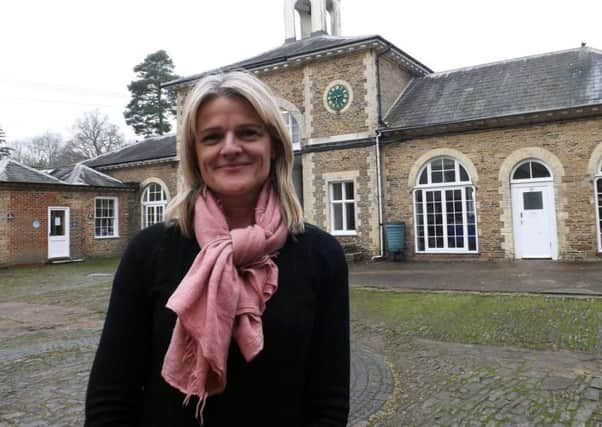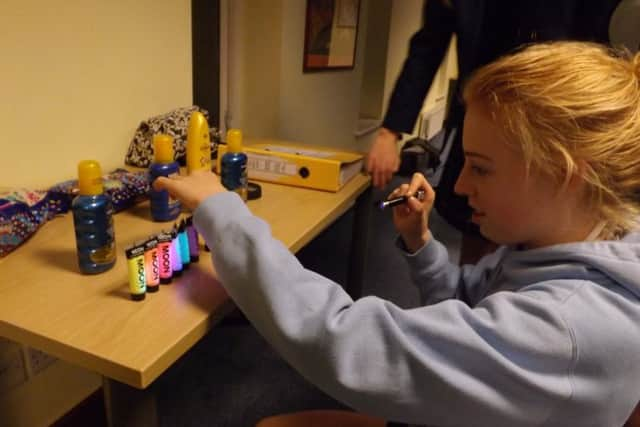Your news: Lectures on skin science and the art of make-up


The talk was entitled: ‘The Science behind our Skin, the Sun and the Art of Safe Tanning.’
He gave a very informative and fascinating lecture which discussed many aspects of our skin including the ageing process, tanning and sun-creams.
Advertisement
Hide AdAdvertisement
Hide AdVarious myths about the skin were uncovered and students even discovered that the invention of the microwave involved pigeons dying during World War II!


A particular highlight for the students was having the opportunity to look at how light altered the colour of face and body paints. Mr Mellor gave a stimulating lecture into the science behind our skin and how best to look after it.
Our third Vive lecture of this year was hosted by our very own English teacher, Allison Eversden.
Allison, who trained in Sydney, Australia, as a makeup artist in her twenties, presented a fascinating insight into the world of make-up artistry.
Advertisement
Hide AdAdvertisement
Hide AdWe discovered that there is a range of interesting roles available within the make-up artist industry.


You could work applying make-up to models for still photographs, for actors and actresses at the theatre or even within the film and television industry.
A captivating video of the series ‘face-off’ illustrated how make-up within the special effects industry can alter someone’s appearance to an extraordinary level, starting with a very simple ‘bald cap!’ Allison presented various illustrations which showed how make-up has changed over specific time periods such as between the 1920s and 1980s.
You may have to have knowledge of the time period you are working in and make sure the make-up you apply is authentic.
Advertisement
Hide AdAdvertisement
Hide AdOther factors to consider are that in a soap-opera for example you may need to recreate a bruise or wound.
In this instance, you would need to take continuity photographs to show how it gradually fades through time, just as it would in real life.
There are so many factors you need to consider!
Students were introduced to the various skills you need to become a make-up artist such as being good with people and being able to work under pressure.
A typical day on a film set is likely to involve an early start, a long day and lots of waiting around.
Advertisement
Hide AdAdvertisement
Hide AdYou need your own make-up equipment, a good portfolio and lots of patience and creative flair!
Thank you Ms Eversden for a truly fascinating lecture which gave the students a useful insight into the life of a make-up artist and the many areas they could work in.
Contributed by Farlington School
Don’t miss out on all the latest breaking news where you live.
Here are four ways you can be sure you’ll be among the first to know what’s going on.
1 Make our website your homepage at www.wscountytimes.co.uk
2 Like our Facebook page at www.facebook.com/wscountytimes
3 Follow us on Twitter @wscountytimes
Advertisement
Hide AdAdvertisement
Hide Ad4 Register with us by clicking on ‘sign in’ (top right corner). You can then receive our daily newsletter AND add your point of view to stories that you read here.
And do share with your family and friends – so they don’t miss out!
The County Times – always the first with your local news.
Be part of it.